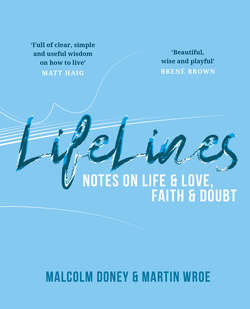Читать книгу LifeLines - Malcolm Doney - Страница 16
На сайте Литреса книга снята с продажи.
Оглавление7
Use the F Word
In March 1986, a gang armed with knives broke into a vicarage in Ealing, West London. During the assault Jill Saward, aged twenty-one, was raped; her boyfriend and father were beaten so violently that both were left with fractured skulls. But Jill’s response was unexpected. ‘I do not now, nor have I ever, hated the men who attacked me,’ she said later. ‘While I hated what they did to me, I was always able to distinguish between the act of aggression and the aggressors.’1
Jill Saward would dedicate the rest of her life to campaigning for the rights of survivors of sexual assault. As a Christian she was familiar with the words of the Lord’s Prayer: ‘Forgive us our sins as we forgive those who sin against us.’ She said that there was never any question about forgiving her attackers, that was what her faith asked of her.
However, not everyone shares that faith. And not everyone who shares it, could make such a decision to forgive.
Forgiveness divides people. When the journalist Marina Cantacuzino, founder of the Forgiveness Project, was collecting stories of forgiveness and reconciliation for an exhibition called The F Word, she noticed that some people see forgiveness as a noble response to atrocity – and others see it as ridiculous. Even for those who believe in forgiveness, for most it will be a journey, not just in the face of the kind of brutal violation experienced by Jill Saward, but in the ordinary humdrum of our everyday relationships. Forgiveness is the WD-40 that smooths the creaking hinges of our relationships – and sometimes keeps the doors from falling off altogether.
‘All friendships of any length,’ says the poet David Whyte, ‘are based on a continued, mutual forgiveness.’2 Or as Martin Luther King Jr said: ‘Forgiveness is not an occasional act, it is a constant attitude.’3
Touring with The F Word exhibition, highlighting people whose lives have been shattered by tragedy and violence, Marina Cantacuzino discovered that the process of being able to forgive has no set rules or time limits; it is not dependent on faith and it is often ‘as mysterious as love’.4
She wanted to know if it can ease what George Eliot in Middlemarch called ‘the hideous fettering of domestic hate’. It can, she concluded, but not in an instant. To forgive is both a choice and a process. ‘I have come to see it as an intention,’ writes Cantacuzino: ‘a change of perspective, a direction to line yourself up for rather than a final and fixed destination. When it comes to considering forgiveness everyone has their limits, especially in the case of murder, genocide, rape, or violent extremism. However, within normal, everyday relationships forgiveness begins to feel more like a necessity than a choice.’5
And forgiveness does not always mean reconciliation. If someone is routinely abusing you, says Archbishop Desmond Tutu, you may be better off getting out of the relationship rather than seeking to fix it. Forgiveness brings reconciliation – if not with the person who has hurt you then with the lingering resentment they create.
The anger, bitterness, resentment and guilt that pursue violation can be potent. Hindsight will suggest alternative routes we might have taken and we may end up blaming ourselves, and also hating others. Sometimes the route to reconciliation is reconciliation with ourselves. This is succinctly expressed in a prayer of absolution found in the Prayer Book of the Anglican Church in New Zealand: ‘God forgives you. Forgive others. Forgive yourself.’
